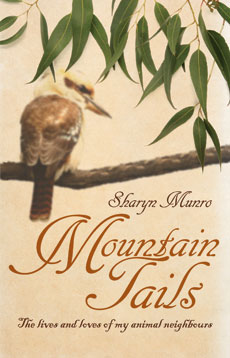 As the advance copies of my second book, Mountain Tails, are about to arrive, anticipation is mounting here on the mountain. All our tails are wagging!
As the advance copies of my second book, Mountain Tails, are about to arrive, anticipation is mounting here on the mountain. All our tails are wagging!
Just like an expected baby, joy and fear are intermingled for me until I hold the actual book. I cried when I first saw
The Woman on the Mountain; I expect I shall do the same with Mountain Tails.
I can’t wait to see it, and stroke it – and read it, as it will look so different from my A4 manuscript!
It will be even more exciting because I have done a black and white (and grey!) illustration for each of the 44 short tales — anecdotes and observations, mixed with what I have learnt about these wonderful native creatures with whom I share my place.
They continue to amaze, amuse, infuriate and educate me. I hope my book will do the same for my readers, and help ensure that no more of our wildlife vanishes into the extinction with which so many are threatened.
I keep telling various of my wild animal neighbours that they are in the book, or apologising to those who’ve only moved in since I handed in the manuscript. I haven’t apologised to the python, but it would have made a great tale, and a great subject for drawing.
Perhaps there will need to be a sequel.
Here’s how Chapter One begins:
Welcome to my Mountain
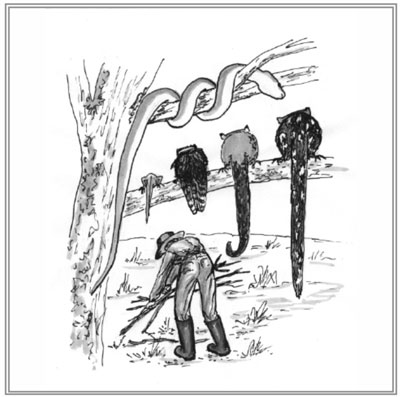
Short or tall or really small,
Furred or feathered, smooth or scaly —
I’m the poorest creature here, without a tail at all.Being the only human resident of a wildlife refuge, on the edge of a national park that is far from any town, I see lots of creatures behaving ‘wildly’. They can be so natural because they ignore me, as they should.
After all, I’m obviously of an inferior and inadequate species: no tail, only two legs, pathetic hearing, poor vision that’s shockingly so at night, no built-in insulation of fur or feathers, and an apparent inability to survive on the local abundance of grass, leaves, roots and other creatures.
To that general picture of modern white Australians, my neighbours might add other deficiencies peculiar to me: knees that can’t be relied on to bend, as knees must, to climb up and down slopes, inappropriate Celtic skin that burns to cancerous spots under our sunshine, and a lack of any singing talent.
and it ends:
I offer my readers, old and new, this illustrated collection of ‘Mountain tails’. Mostly short, a few tall, mostly new, a few classics — to make you smile, chuckle or sniffle, say ‘Oo-oh!’, ‘Aha!’, or, better still, ‘A-a-ah!’.
Come take a walk in my gumboots and meet my neighbours.
Mountain Tails will be in bookshops in early April, or you can order from the publishers, Exisle, online. More information from Exisle here.
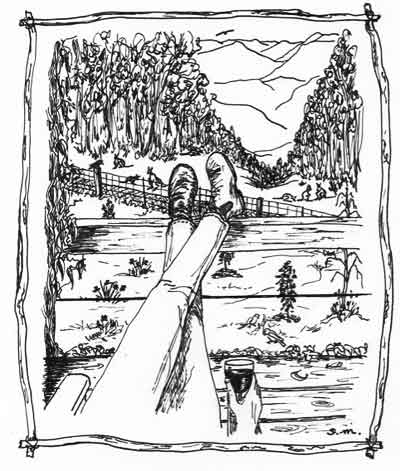
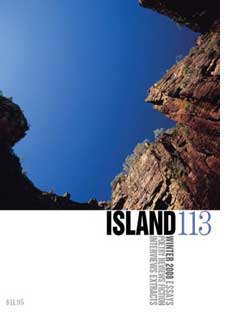 Thanks to Margie Jenkin for her review of The Woman on the Mountain in the latest edition of Island, Tasmania’s justly famous magazine of arts and literature.
Thanks to Margie Jenkin for her review of The Woman on the Mountain in the latest edition of Island, Tasmania’s justly famous magazine of arts and literature.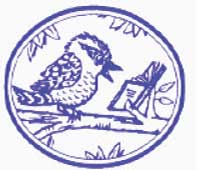 This month I’m heading back down to the cultural haven of Eltham in Victoria.
This month I’m heading back down to the cultural haven of Eltham in Victoria. 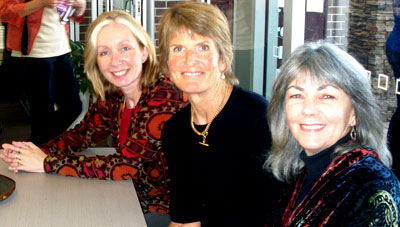
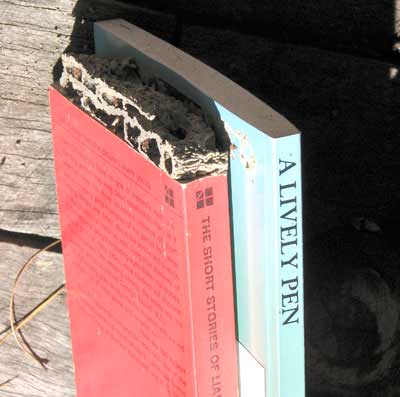
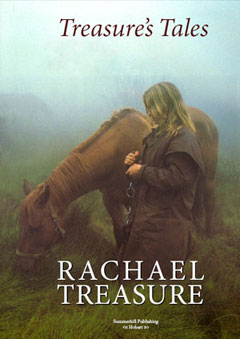 As a lover of the physical fact of books—their weight and feel, their look and smell, and their cumulative presence as they cover my walls—I have not been in favour of eBooks.
As a lover of the physical fact of books—their weight and feel, their look and smell, and their cumulative presence as they cover my walls—I have not been in favour of eBooks.
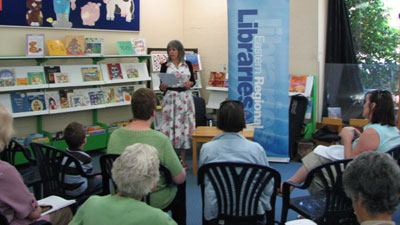
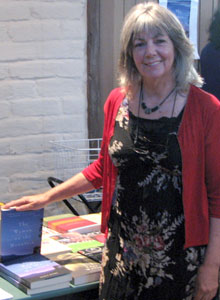 At the marvellous mudbrick Eltham Library they nibbled on cheese and bickies and sipped wine in an equally civilised manner. Hot question times followed, and at Eltham we only stopped because the library was closing.
At the marvellous mudbrick Eltham Library they nibbled on cheese and bickies and sipped wine in an equally civilised manner. Hot question times followed, and at Eltham we only stopped because the library was closing.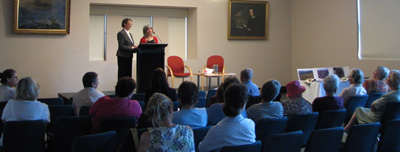
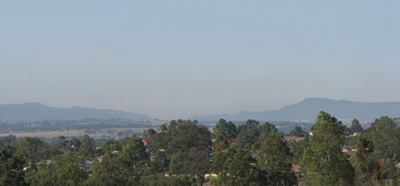
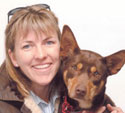 Thanks to Rachael Treasure for her kind remarks about The Woman on the Mountain on her entertaining website,
Thanks to Rachael Treasure for her kind remarks about The Woman on the Mountain on her entertaining website,